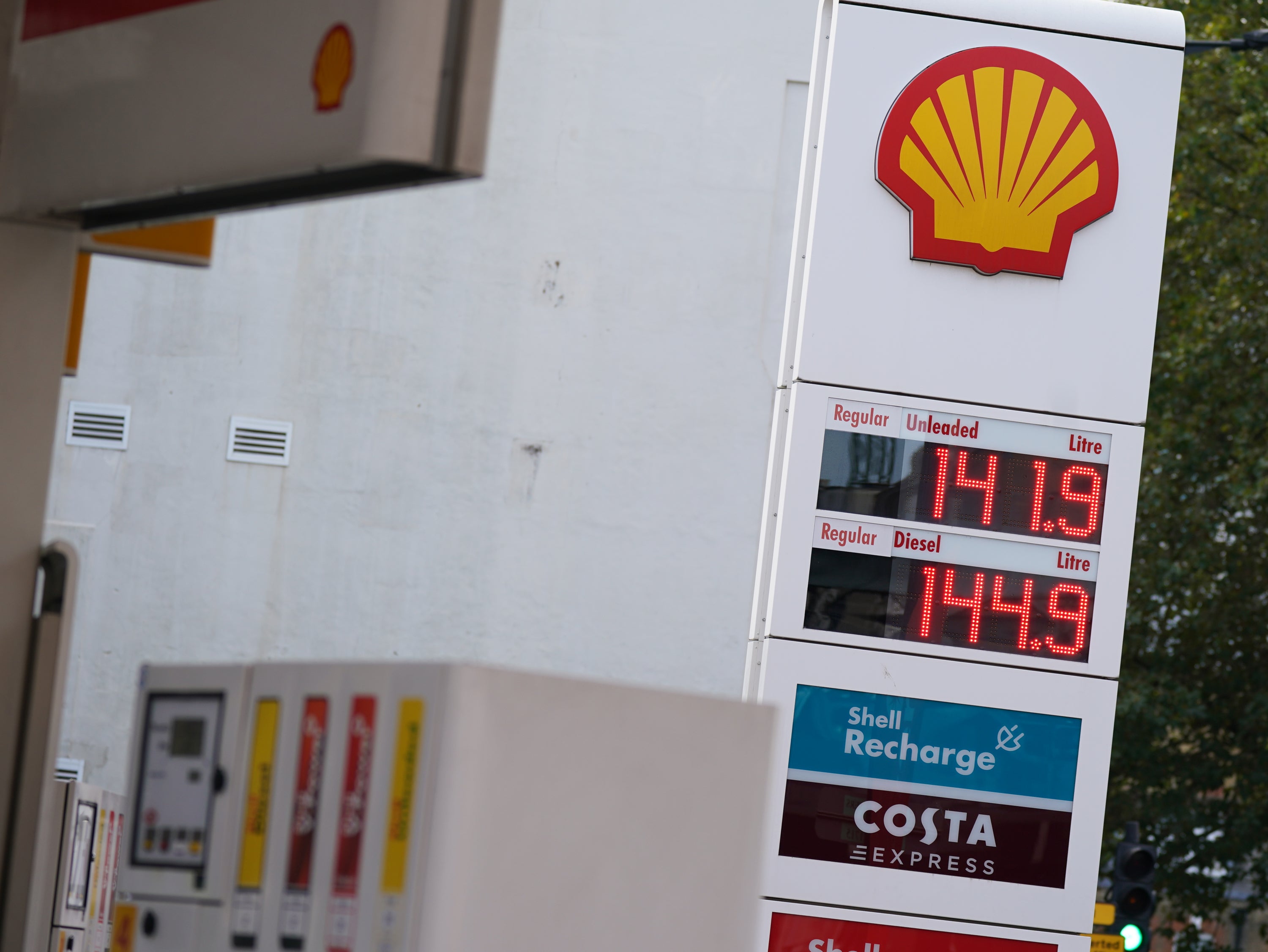Oil price spikes to almost $100 a barrel as crisis mounts in Ukraine
Brent crude hits highest level in seven years, signalling further cost-of-living squeeze for UK households

Your support helps us to tell the story
From reproductive rights to climate change to Big Tech, The Independent is on the ground when the story is developing. Whether it's investigating the financials of Elon Musk's pro-Trump PAC or producing our latest documentary, 'The A Word', which shines a light on the American women fighting for reproductive rights, we know how important it is to parse out the facts from the messaging.
At such a critical moment in US history, we need reporters on the ground. Your donation allows us to keep sending journalists to speak to both sides of the story.
The Independent is trusted by Americans across the entire political spectrum. And unlike many other quality news outlets, we choose not to lock Americans out of our reporting and analysis with paywalls. We believe quality journalism should be available to everyone, paid for by those who can afford it.
Your support makes all the difference.Oil prices spiked to their highest level in seven years on Tuesday after Vladimir Putin ordered Russian troops to enter Ukraine.
Brent crude rose close to the $100 mark as the closely followed oil price benchmark hit $99.50 due to fears about global supplies.
Experts warned that higher oil prices would result in a further squeeze on household living standards as fuel and energy costs continue to rise.
Markets reacted to threats of sanctions on Russia from UK, EU and US governments, with Boris Johnson warning Mr Putin on Tuesday that the UK would launch a “barrage” of financial measures against Russia.
Any measures from the EU that restrict Russian supplies of oil and gas would push up prices and add to pain for European households.
Russia produces around 10 per cent of global oil supplies, making it the world’s third largest producer behind the US and Saudi Arabia.
The FTSE 100, which counts BP and Shell as two of its largest members, fell 1.2 per cent on Tuesday before recovering its losses to close up 0.1 per cent at 7,494.21.
BP is seen as exposed to any tough sanctions that impact on the Russian energy sector because it has a large stake in Kremlin-backed oil firm Rosneft. Shell has interests in Russia's Sakhalin 2 offshore oil and gas project. The two companies have seen their share prices decline as tensions have risen in recent days but both rebounded slightly on Tuesday.
Asian markets saw big declines overnight with the Hang Seng index in Hong Kong tumbling 2.7 per cent, while the Nikkei 225 in Japan finished 1.7 per cent down, prompting falls across Europe when markets opened. Germany's Dax fell 0.7 per cent before recovering to trade 0.2 per cent down.
Western governments have talked up the prospect of swingeing sanctions but have so far announced limited measures.
EU and UK governments are hampered by Europe's dependence on Russian raw materials, notably oil and gas, but also metals including aluminium and palladium.
Any sanctions imposed by the EU would have to weigh the damage to Mr Putin's regime against the economic impact on Europe.
Any move that could result in lower oil and gas supplies from Russia would add to a cost-of-living squeeze that has already seen households hit with huge increases to energy bills and sharply rising inflation.
In the strongest sign of western retaliation so far, Germany announced on Tuesday that it had formally stalled the opening of Nord Stream 2, a new pipeline to transport vast quantities of gas from Russia into Europe. The project has long been delayed over fears it will increase EU dependence on Russia.
Boris Johnson announced sanctions against five Russian banks and three Russian billionaires, who have had their assets frozen and been slapped with UK travel bans.
Susannah Streeter, senior investment and markets analyst at Hargreaves Lansdown, said tough sanctions would inevitably “cause pain for UK consumers”.
Any action that resulted in higher energy prices would mean that inflation would likely “spike higher and last for longer”, she added.
Russ Mould, investment director at AJ Bell, said the situation in Ukraine would mean stock markets are likely to remain volatile.
Mr Mould said: “The threat of Russia invading Ukraine was clearly visible at the end of 2021, but most investors were more concerned about inflation and how fast interest rates might go up.
“Now the threat of war is very real, and investors will need to add it to their growing list of things to worry about. This could prompt another bout of panic and lead to heightened market volatility.”
Brent crude was trading at $97.01 at 5pm, up 1.7 per cent on the day.
Join our commenting forum
Join thought-provoking conversations, follow other Independent readers and see their replies
Comments